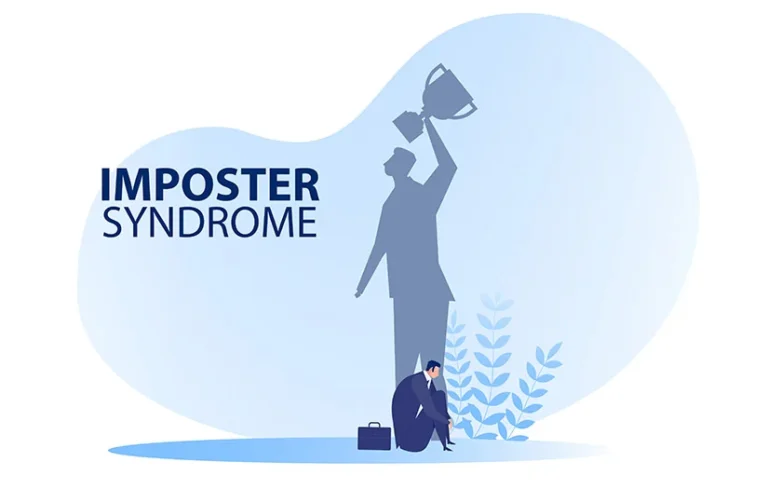The impostor phenomenon, an experience of feeling incompetent and of having deceived others about one’s abilities, is reviewed. Impostor feelings are shown to be associated with such characteristics as introversion, trait anxiety, a need to look smart to others, a propensity to shame, and a conflictual and non-supportive family background. It is a psychological occurrence in which people doubt their skills, talents, or accomplishments and have a persistent internalized fear of being exposed as frauds 1 Impostor syndrome is the psychological experience of believing that one’s accomplishments came about not through genuine ability, but as a result of having been lucky, having worked harder than others, or having manipulated other people’s impressions. (Clance & Imes, 1978).
Impostor phenomenon occurs as a result of seeking self-esteem by trying to live up to an idealized image to compensate for feelings of insecurity and self-doubt.
The “Impostor Phenomenon” was first described by Dr Pauline Clance, from her observations in a clinical setting (Clance, 1985). Individuals with the Impostor Phenomenon experience intense feelings that their achievements are undeserved and worry that they are likely to be exposed as fraud. This causes distress and maladaptive behaviour. Most Impostors are able to fulfill their academic or work requirements despite their self-perceived fraudulence. It is possible that subclinical symptoms resulting from impostor fears can if prolonged, lead to clinical levels of depression or anxiety. 2
Impostor Syndrome is the internal experience of intellectual phoniness in individuals who are highly successful but unable to internalize their success. (Matthews & Clance, 1985)
Clance (1985) suggested that the Impostor Phenomenon is marked by six potential characteristics: (1) The Impostor Cycle, (2) The need to be special or to be the very best, (3) Superman/Superwoman aspects; (4) Fear of failure, (5) Denial of competence and Discounting praise, and (6) Fear and guilt about success. Harvey and Katz (1985) posited that the Impostor Phenomenon consisted of 3 factors: (1) the belief that he/she has fooled other people, (2) fear of being exposed as an impostor, and (3) inability to attribute own achievement to internal qualities such as ability, intelligence, or skills. Some of the traits and patterns observed with impostor syndrome include anxiety, overworking, feeling like a fraud among others. 2
A psychological pattern rooted in intense, concealed feelings of fraudulence when faced with achievement tasks
Impostor syndrome is a phenomenon that is usually experienced by a lot of highly successful people. According to a research paper conducted by Bravata, D. M., et al., Journal of General Internal Medicine, Vol. 35, No. 4, 2020 titled Prevalence, Predictors, and Treatment of Impostor Syndrome: a Systematic Review 3, Impostor syndrome is prevalent and up to 82% of people have experienced it at one point or the other.
Those dealing with impostor syndrome typically experience self-doubt, anxiety insecurity and a feeling that they got to the top not necessarily because of their ability but luck. It is a psychological occurrence that is most common with creatives as self-doubt creeps in when challenging times occur or even when one gets rewarded for their consistency. It is a feeling of “I would get found out”, and “feeling like a fraud”. The impostor syndrome was first observed among women and other marginalized groups.

In her memoir, Finding Me, American actress Violas Davis writes about dealing with impostor syndrome and how an encounter with fellow actress Meryl Streep helped her deal with her feeling of impostor. She writes:
There’s a part of me that knows that she would hate me saying this. She is as humble as she is talented and she is as kind as she is absolutely, 100 percent NOT intimidating. She simply is seen as the best, and acting opposite her agitates the biggest beast that lives within every actor . . . the impostor syndrome.
The next day I got to rehearsal probably half an hour early and just sat there and stared at the front door, waiting. She came through the door and said, “Hi, Viola, I’m Meryl.” I froze. She had to go to the bathroom and I said, “You know what? I have to go to the bathroom too,” and followed her although I didn’t really need to go. I went because she was going. I acted stupid at first, but we broke out of that.
We had great discussions during rehearsal: what it’s like to be on top with the impostor syndrome constantly chasing you and making you feel ostracized because you were the chosen one.
Meryl said something wonderful that helped me let go of the impostor feeling. “Yeah, Viola, we know the truth.” What she was saying is we know the truth of what it means to be in this position. It doesn’t puff up your walk if you love what you do. It’s a great responsibility. That’s constantly overlooked and misunderstood.

You’re ready. Start making stuff. 2
You might be scared to start. That’s natural. There’s this very real thing that runs rampant in educated people. It’s called “impostor syndrome.” The clinical definition is a “psychological phenomenon in which people are unable to internalize their accomplishments.” It means that you feel like a phony like you’re just winging it, that you really don’t have any idea what you’re doing.
“Guess what: None of us do. Ask anybody doing truly creative work, and they’ll tell you the truth: They don’t know where the good stuff comes from. They just show up to do their thing. Every day.
A psychological phenomenon in which people are unable to internalize their accomplishments.



Comments are closed.